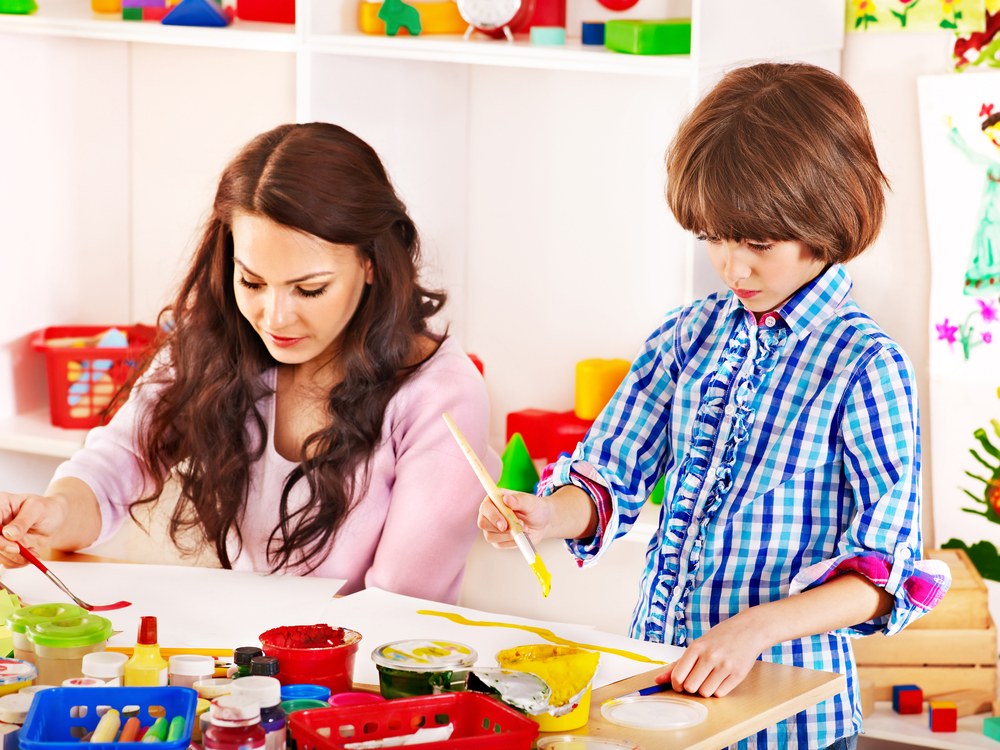Decision making skills Normal Worksheets for Ages 5-7
6 filtered results
-
From - To
Our “Decision Making Skills” worksheets for ages 5-7 are designed to cultivate critical thinking in young minds. These engaging activities assist in developing logical reasoning and problem-solving abilities. By presenting real-life scenarios, children learn to weigh options, consider consequences, and make informed decisions. Each worksheet combines fun with learning, ensuring that kids not only stay engaged but also grasp essential life skills early on. Ideal for both classroom use and home practice, these resources support teachers and parents in nurturing thoughtful, confident decision-makers. Equip your child with the tools to navigate choices successfully today!
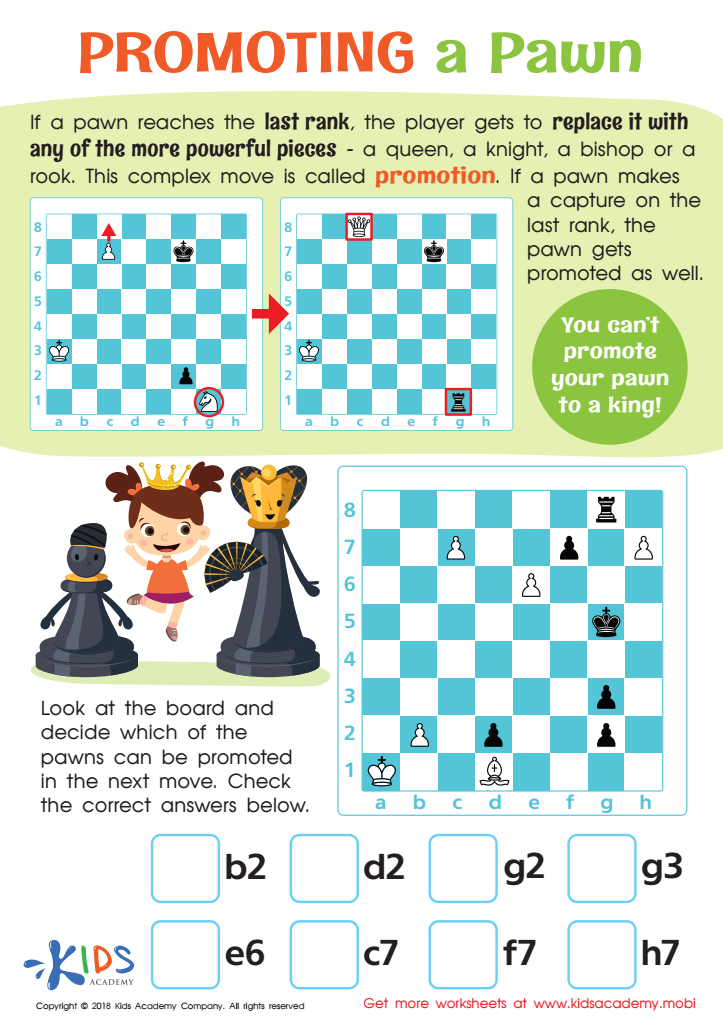

Promoting a Pawn Worksheet
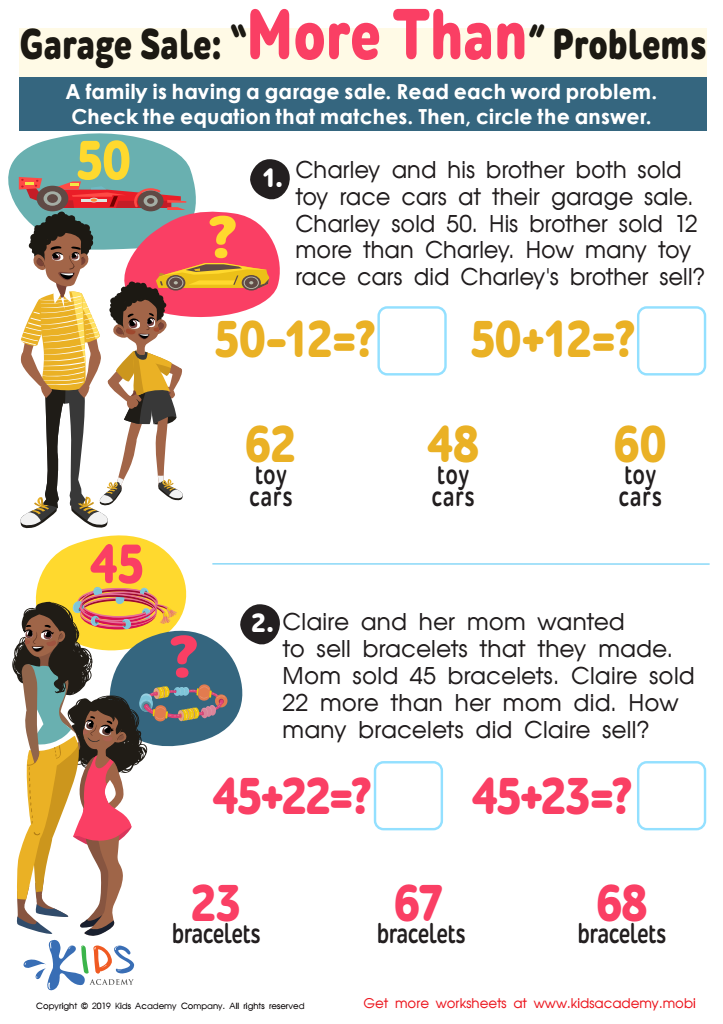

Garage Sale - More yhan Worksheet
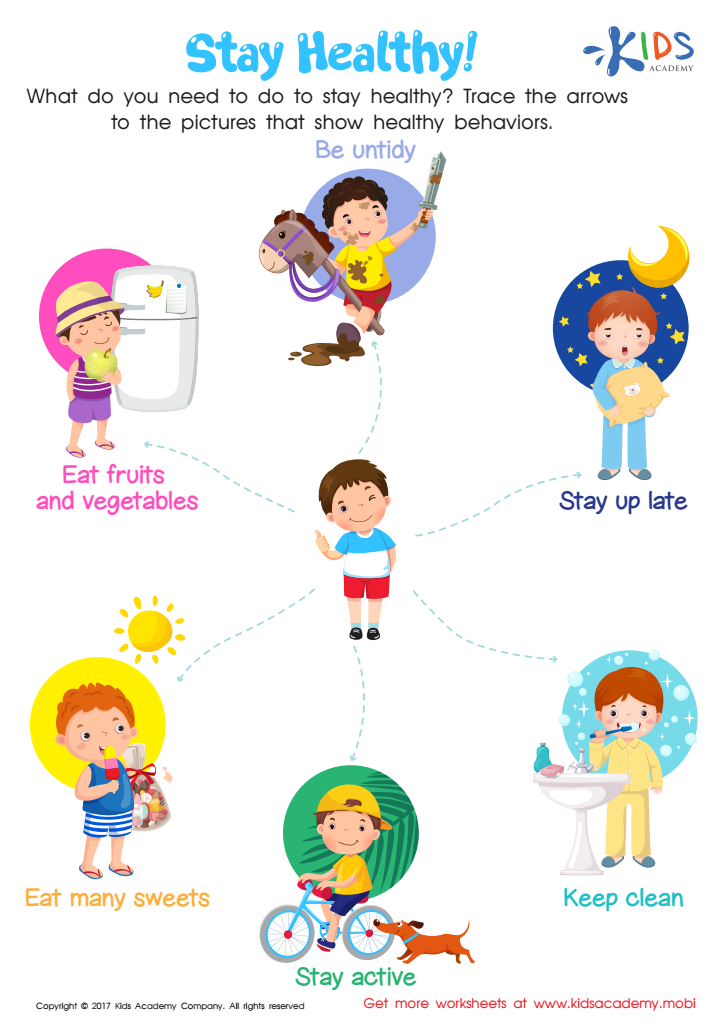

Healthy and Unhealthy Behaviors Worksheet
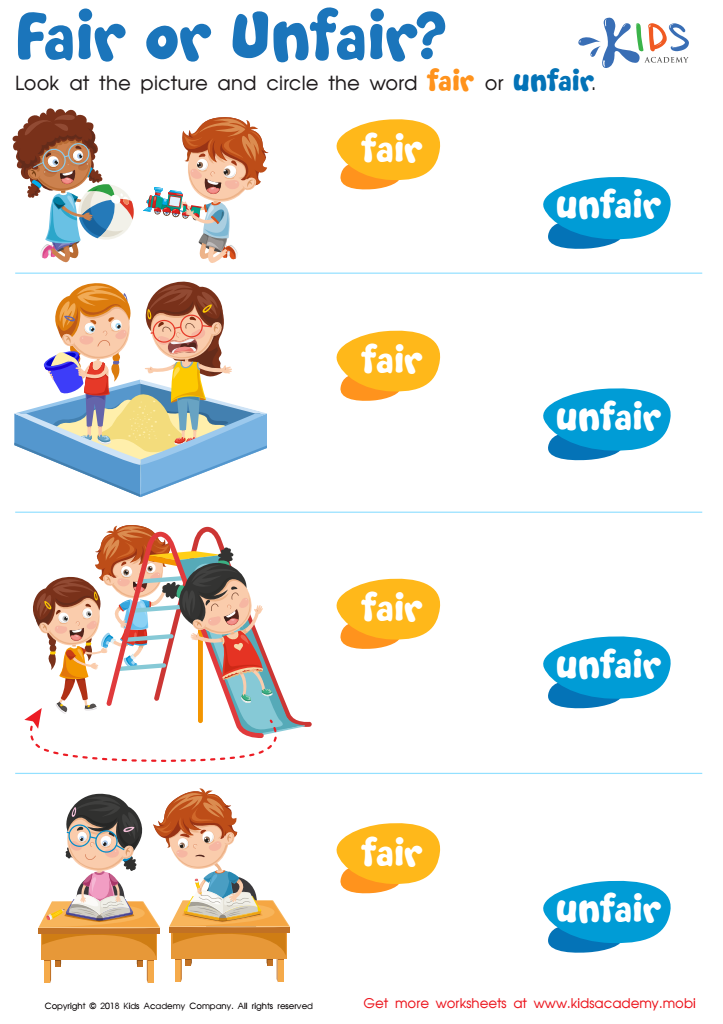

Fair or Unfair Worksheet


Towns Worksheet
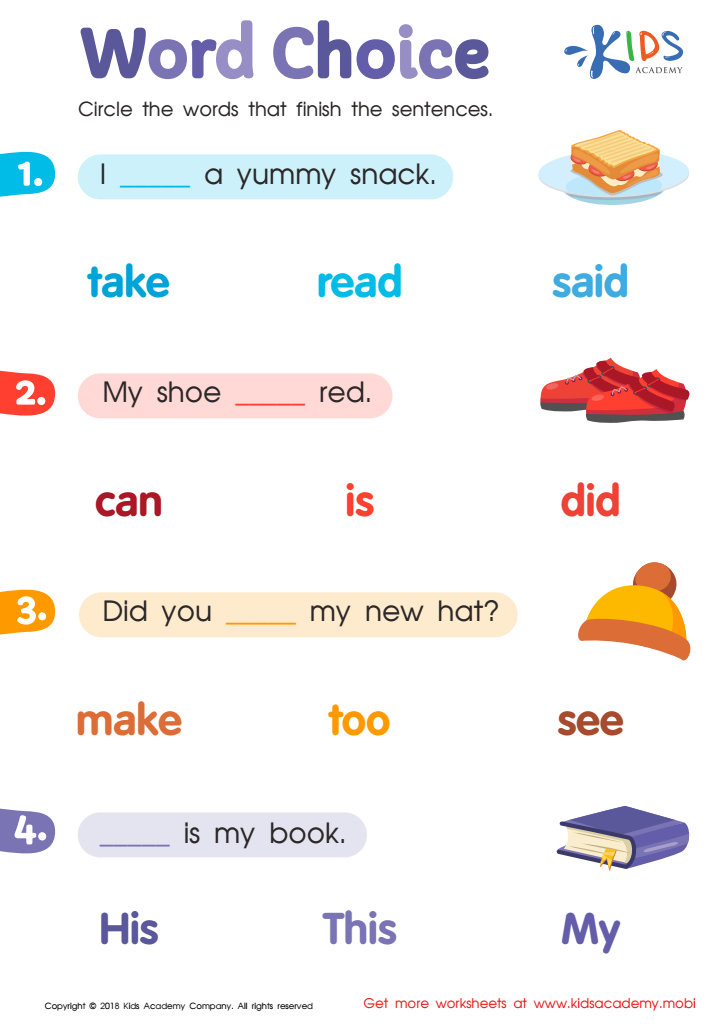

Word Choice Worksheet
Decision-making skills are essential for children aged 5-7 because this is a formative period in their cognitive and emotional development. During these years, children are beginning to understand the consequences of their actions and learning how to evaluate options, a crucial skill for their overall well-being and future success.
Firstly, developing decision-making skills at an early age helps build confidence. When children are encouraged to make choices, they learn to trust their judgment and become more self-assured. For example, deciding what to wear or selecting a book to read can make a child feel responsible and improve their self-esteem.
Secondly, these skills foster independence. Learning to make decisions helps children understand cause-and-effect relationships, preparing them for more complex problem-solving situations in the future. This independence is essential for academic success; it encourages children to tackle tasks on their own and develops critical thinking skills.
Lastly, good decision-making habits contribute to better social relationships. Children learn to consider other people's feelings and opinions, which improves their empathy and ability to work collaboratively. Making fair and thoughtful choices can reduce conflicts and help in developing lasting friendships.
In conclusion, instilling strong decision-making skills in children aged 5-7 sets a foundation for a confident, independent, and socially adept individual, making it a crucial focus for both parents and teachers.

 Assign to My Students
Assign to My Students


